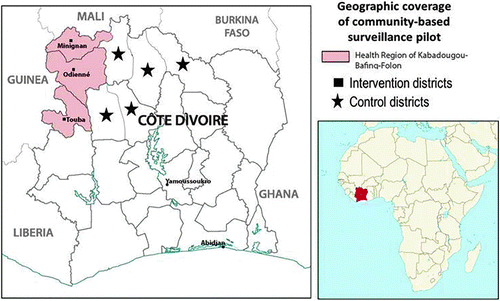Public health programs worldwide look to develop systems for early warning of outbreaks of significant disease, and as the coronavirus outbreak makes headlines around the world there is a renewed focus on how to use the latest technology to improve these systems.
Magpi users have demonstrated with Ebola, Zika, and many other diseases, that rapid, inexpensive disease surveillance can be set up within hours.
Is it time to think about this in the context of coronavirus? We think it is.
SMS for Ebola
During the Ebola crisis in West Africa, Magpi was used for a wide variety of purposes, as reported in InformationWeek, Forbes, and elsewhere. While much of the collection of data for Ebola happened using the Magpi smartphone apps, folks at CDC decided to take advantage of Magpi’s unique SMS data collection capabilities to broaden the surveillance for Ebola in communities in Guinea-Bissau, a small and poor country of West Africa.
Dubbed “zero-reporting”, the system required reporting participants to send one daily text message per day with a simple message: a keyword, #, and then a number representing the number of suspected Ebola cases seen by that reporter.
Example of SMS reporting on a basic phone
Remarkably, the entire system was up-and-running in just one work day, as reported in the recent publication of findings:
The SMS system took about eight hours to set up and was operational the day immediately following the training . . . Our preliminary results from this pilot initiative demonstrate that real-time, daily zero-reporting can be implemented in a rapid, cost-effective way in a low resource country.
Click below to access the original article:
The latest use of SMS for surveillance
Of course, Magpi users are continuously adapting the software, both app-based and SMS-based, for a variety of public health tasks, including disease surveillance.
Recently reported in the journal Health Security (January 31, 2020), the Cote D’Ivoire Ministry of Health, in collaboration with CDC (the US Centers for Disease Control and Prevention), implemented an impressive system of community-based disease surveillance incorporating both Magpi mobile data collection as well as SMS-based reporting using Frontline SMS.
Figure 1. Map of Côte d'Ivoire with the health region of Kabadougou-Bafing-Folon highlighted, and the 3 intervention health districts for community-based surveillance denoted. The black stars represent the 5 control districts in the health regions of Poro-Tchologo-Bagoue and Worodougou-Bere. Inset: Map of Africa with Côte d'Ivoire highlighted in red.
According to the published paper, the system focused on particularly significant diseases and events:
Côte d'Ivoire's Ministry of Health selected 5 priority diseases—polio, cholera, measles, meningitis, and yellow fever—and 5 unusual health events: illness in a healthcare worker, death of a healthcare worker, unexpected animal or fish deaths, a sudden or unexplained death in the community, and arrival in the community of any person coming from a country or region experiencing an epidemic.
Magpi forms the digital backbone of this system:
The epidemiologic surveillance officer entered suspected cases of diseases into the Côte d'Ivoire Ministry of Health's Magpi website server, which operated as a private cloud-based mobile application (https://home.magpi.com/). Magpi is the national electronic IDSR surveillance reporting system in which all investigated cases are reported.
In all, the combination of SMS and other reporting methods “demonstrated that increased community involvement and innovative communication strategies can help to improve signal detection and reporting.” This led to strengthening of existing systems, and increased readiness for the inevitable next outbreak.
Link to journal article: https://www.liebertpub.com/doi/full/10.1089/hs.2019.0062
Remaining alert for coronavirus
As of this writing, coronavirus cases in China are coming down, but we’re seeing outbreaks pop up in Italy, South Korea, Japan, and the Middle East. In coming weeks, the world will need to be vigilant in order to more quickly identify the inevitable hotspots of coronavirus that will pop up — especially in countries and regions where the public health system is relatively week.
If you’re considering how you’ll deal with coronavirus in your region or country, consider the proven record of SMS for fast and cost-effective first-line disease reporting.



